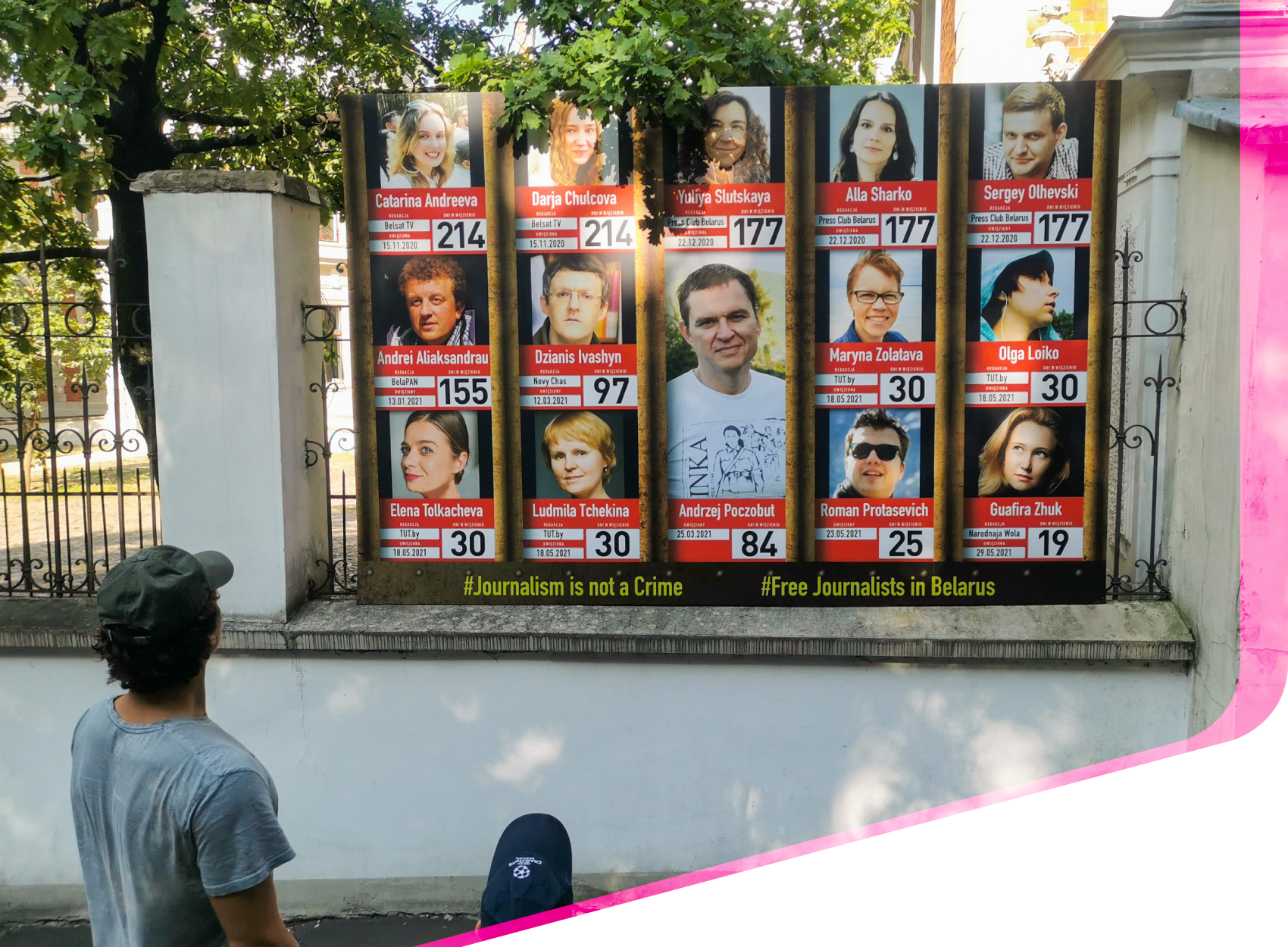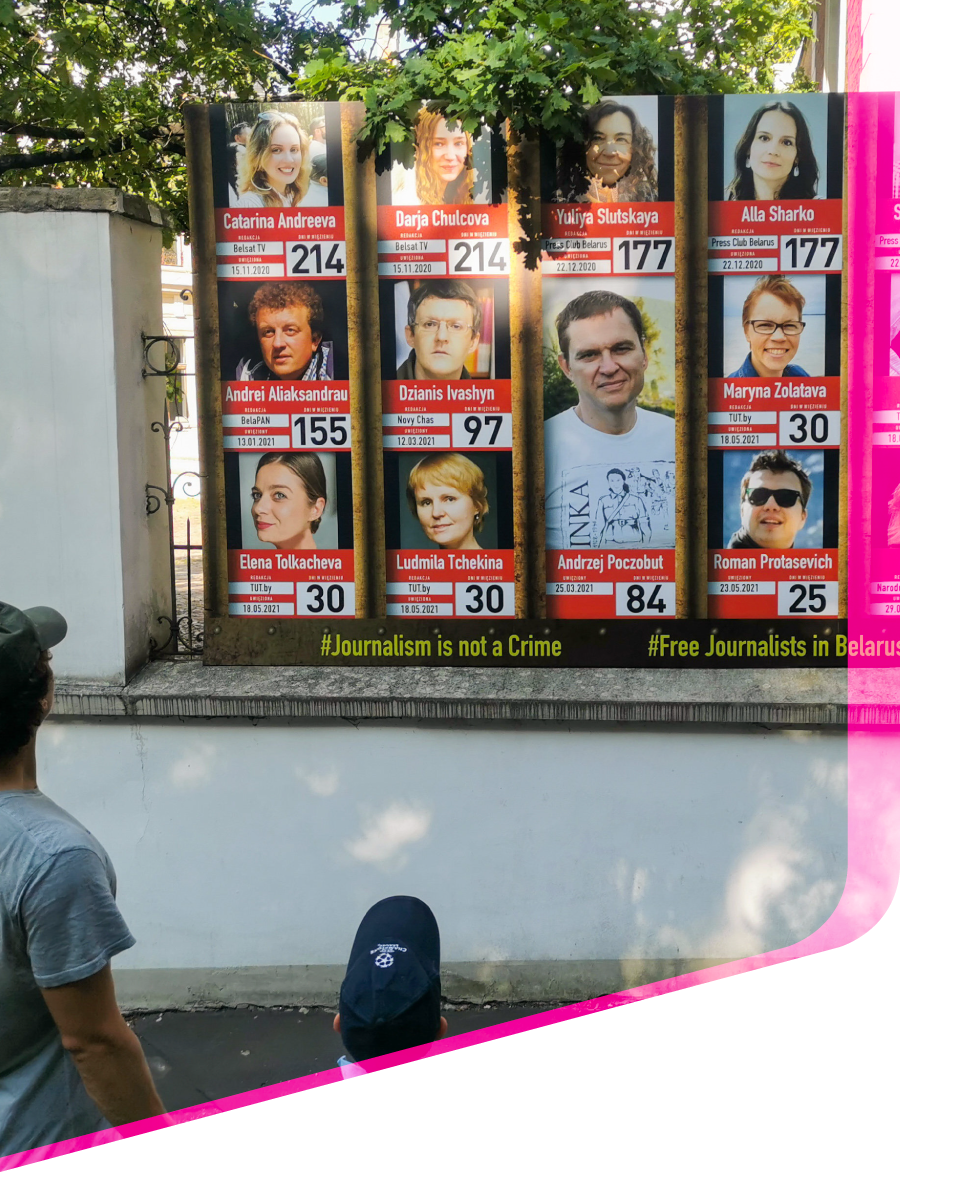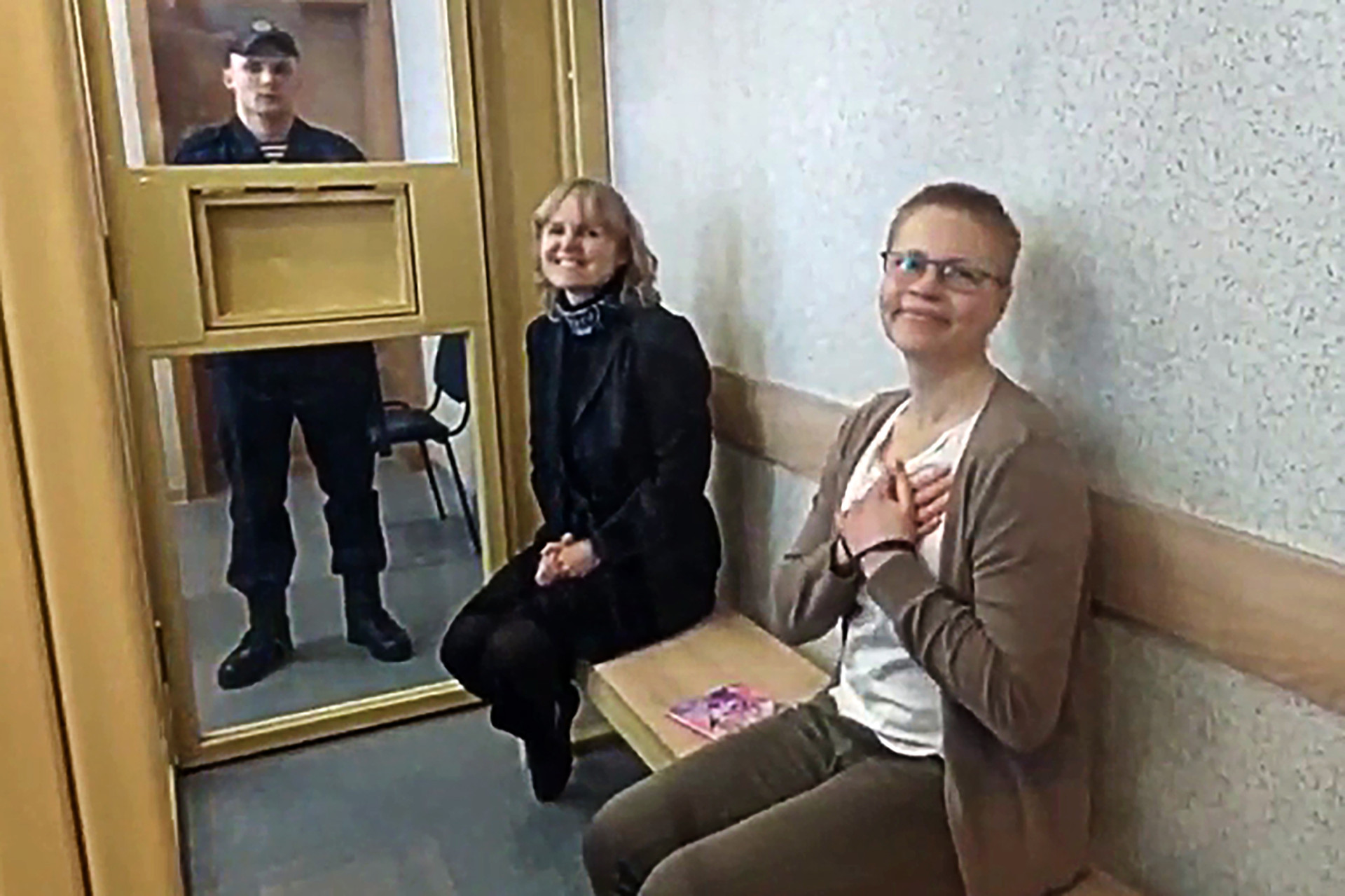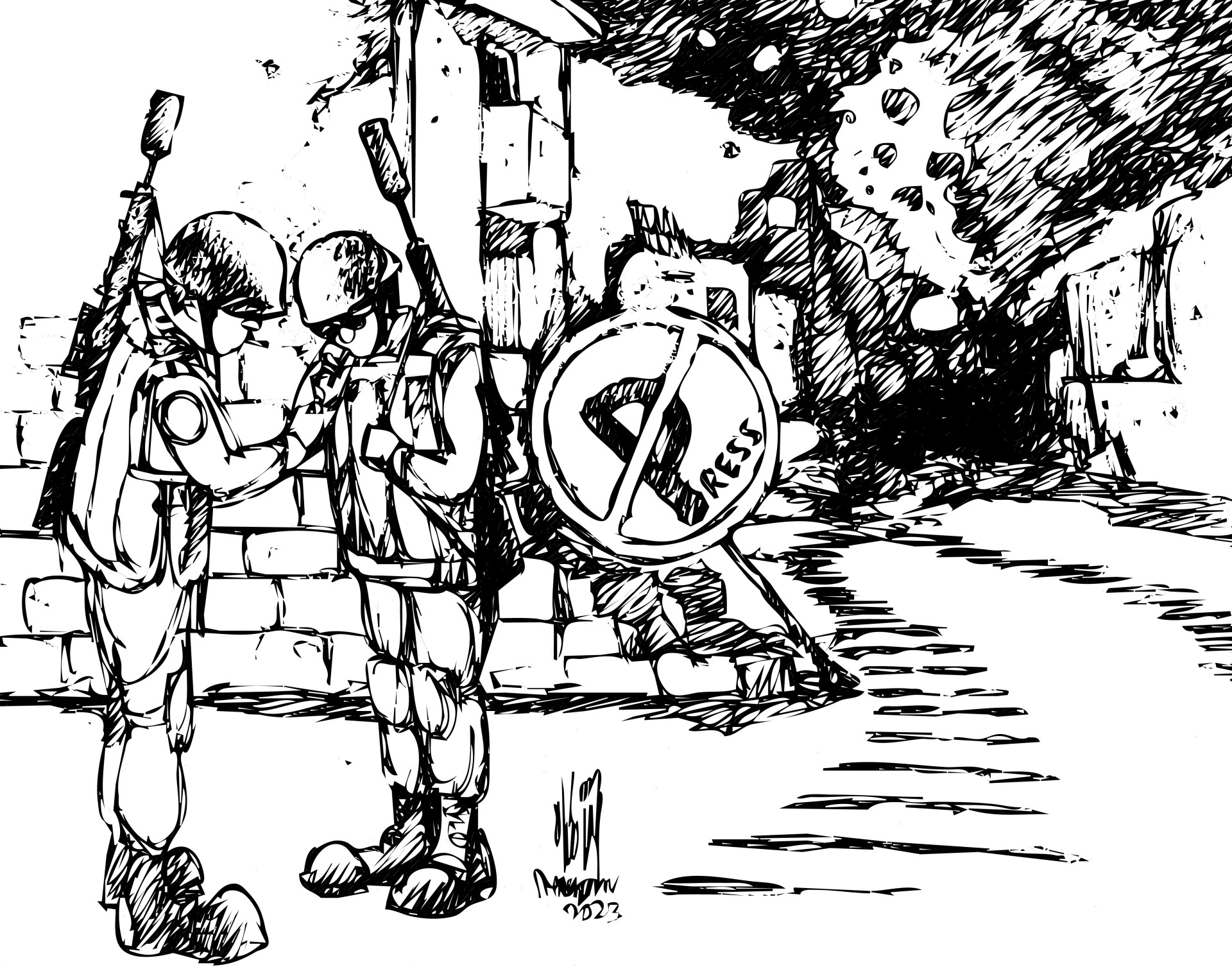
Belarus
Belarus
Belarus
Prison or Banishment
Prison or Banishment
Prison or Banishment

Belarus
Prison or Banishment

Maryna Zolatava (R) and Lyudmila Chekina (L)
What happens to Media Professionals in Belarus?
On 9 June 2023, the Ministry of Interior Affairs of Belarus declared the team of ZERKALO.IO to be an "extremist formation". It means, if a journalist of this online newspaper would return to Belarus, he or she will immediately have to go to prison for seven years. The same punishment provided for its collaborators – such as an interview, a photo or a comment sent to the editorial office: The current Belarusian authorities call this "promoting extremist activities."
Since 2020, Lukashenko’s regime has repeatedly prosecuted journalists for their work. According to the Belarusian Association of Journalists (BAJ), security forces have detained media workers more than 600 times in 2020-2022. Hundreds of them were arrested and detained under conditions that can in no way be described as humane. Thirty-three media professionals are currently in detention.
One of them is Marina Zolotova, the editor-in-chief of TUT.BY, an "independent" news, media and service internet portal. She worked at TUT.BY for more than 15 years and managed to build one of the largest credible online media in Belarus. More than 3.5 million people per month read it, which is more than a third of the country's total population. In public speeches, Marina Zolotova repeatedly said that the independent Belarusian media was a guarantee of information security for the country, which was already under Russian influence at the time. When Belarusians read Belarusian news about events in the country, they felt that they were a separate sovereign nation with their own state. In March 2023, the Lukashenko regime sentenced Marina Zolotova to 12 years in prison - for allegedly inciting social hatred and calling for sanctions against the regime in 2020. However, what did she and her editors actually do? They honestly reported on the events that actually took place during, after, and beyond the presidential election in Belarus.
In 2021, Belarusian authorities destroyed or suppressed almost all independent media in the country.
The first was TUT.BY. Two months later, the editorial offices of NASHA NIVA, BELAPAN and RADIO SVABODA (Liberty) were literally reduced to rubble; later, a wave of searches hit the major regional media outlets.

Some of them ceased to exist altogether, but majority of the media continued their work in exile. The independent media that remained in Belarus were forced to withdraw from political and economic topics and generally from contents critical of the authorities. Any transgression of the set "red line" ends, at best, with the blocking of the website, at worst with the search of editorial offices and the arrest of employees. Within the country, the remaining media established the "regime of silence" on socio-political issues for the purpose of self-protection. Media teams that were forced to leave the country continued their work abroad. Despite the blocking of websites and the classification of material as "extremist" in Belarus, despite audience fatigue due to the always negative agenda and bad news, millions of Belarusians still want to know the truth. Figures and statistics prove this. According to Alyaksandra Pushkina, about three million people read a representative of ZERKALO, which was founded by former employees of TUT.BY, their media alone every month.
Having failed to enforce a "silence regime" for media outside Belarus, Belarusian authorities continue to increase pressure within the country, criminalizing any interaction with independent media for their local buyers. Subscribing to them or liking them on social networks is punishable by 15 days in prison under Belarusian law. Recognition of media outlets as "extremist formations" can also end with criminal liability for their readers. Thus, there are at least a dozen cases in which Belarusians were sentenced to 2.5 to 5 years in prison for sending pictures of Russian military equipment moving on Belarusian territory in the first months of the war to the editorial offices of independent media.
This status - "extremist formation" - has already been assigned to 12 Belarusian media outlets, including: Belsat TV, Radio Free Europe/Radio Liberty, Nasha Niva Newspaper, European Radio for Belarus, Zerkalo (Mirror), Flagstock(Belarusian information portal).
In 2023, Reporters Without Borders described Belarus as one of the most dangerous countries in Europe for doing journalistic work. Nevertheless, Belarusian media workers continue to work both inside and outside the country. However, they face a number of challenges on a daily basis: financial instability, concerns regarding their audience safety, lack of access to information sources within the country, technological limitations, and so on.
In Belarus, media outlets are confronted with a state-supported propaganda system that includes de facto all TV channels, major newspapers with compulsory subscriptions, and state-established Telegram channels and online media. Since Russia's full-scale invasion of Ukraine, the country has fully embraced Russian narratives – of a "special military operation", "Nazis in Ukraine" and other lies like that. Today, the independent Belarusian media, which until 2022 primarily informed its audience, have the previously unfamiliar task of countering fake news and propaganda,
"So that our country does not sink into absolute darkness, so that lies do not become truth."
This is how the editorial staff of ZERKALO formulated their goal in an address to their readers after their stigmatization as an "extremist formation".
Belarus
